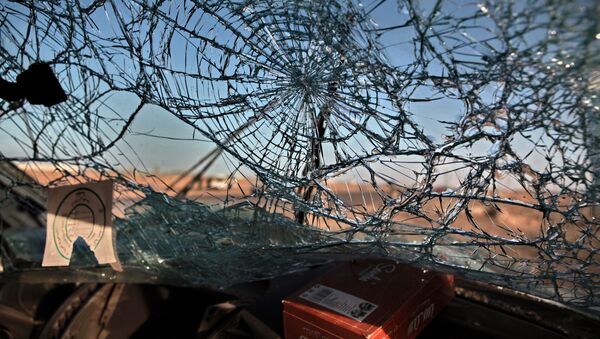Defense Department spokesman Peter Cook told journalists that the US is closely monitoring the situation in Libya in order to say where the things will evolve. Cook said that the Pentagon had already tried to establish contacts with local ground forces and evaluate who might be “worthy of US support” in the struggle against Daesh.
The statement came amid numerous warnings by international analysts that in the near future Libya could face a complete or partial takeover by Daesh militants.
Jason Pack, a Libya researcher, the man who runs Libya-Analysis.com website, told Radio Sputnik that this scenario is highly unlikely adding that Washington won't send US forces to Libya.
“There is zero government in Libya because nobody controls territory, is able to provide public services or to fight the Islamic State or other militias that are disturbing peace. It has long been discussed that certain queasy governments and militias would receive outside support and the international community was hoping to delay doing that until it had in place a unity government and work within and through that unity government to attack the Islamic State. However, attempts to set up such unity government have failed.”
Pack further said that there have been extra ordinary renditions in Libya such as kidnapping of prominent terrorists. There have also been aerial strikes attempting to kill the most important Islamic State commander in Libya. “I don’t see American boots on the ground like an invasion but more covert operations and training of various Libyan militias is exceedingly likely.”
“I think this is an attempt to undermine Obama policy by the Pentagon or to pressure Obama into doing something that he doesn’t want to do,” the researcher noted.
He spoke about the possible internal US government struggles and why they would want to put out certain stories to the media.
Talking about the previous attempts by US government in Libya, Pack mentioned the various training programs that didn’t turn out to be successful at all. So why the US policy makers would suddenly feel the need to bring troops into Libya now remains unclear.
The researcher said a possible reason could be the growing threat of Daesh, but if that is the case the government is late in tackling that problem by bringing in troops.
“I don’t think too little too late would be good for Libya and the right thing to do would be to support Libyans to find a Libyan solution. That could be a coalition against the Islamic State, a bottom up way of governing the country instead of top down imposed government. That would be the right way to spend tax payer dollars and diplomatic engagement,” Pack concluded.



